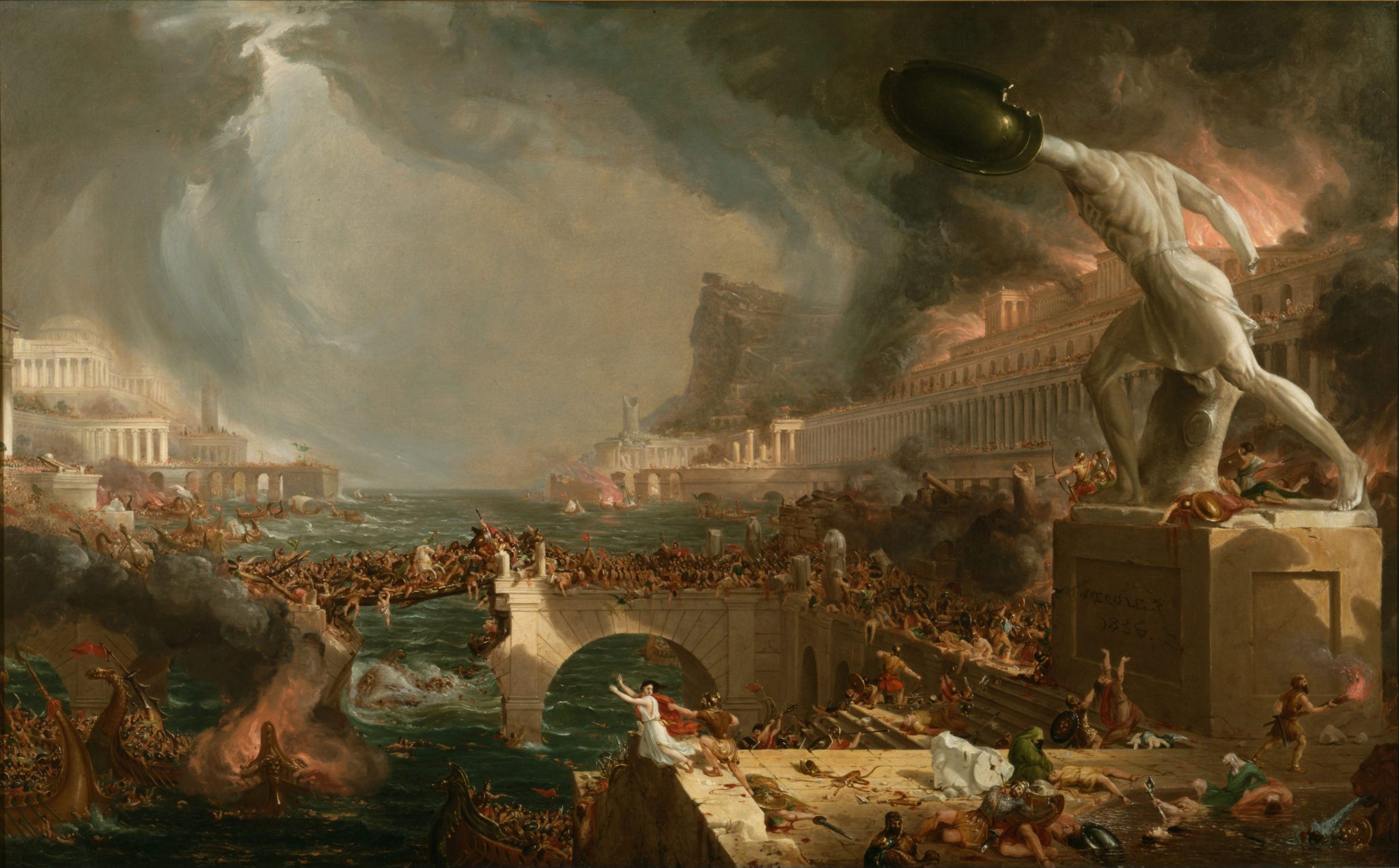America Without Abortion

Of all the forms of divination condemned by the Church and rejected by our natural faculties of reason, logomancy is the most obviously absurd. Hobbes, the wittiest of English philosophers, tells us that words “are wise men’s counters, they do but reckon by them: but they are the money of fools.”
This is more or less my attitude toward listening to oral argument before the Supreme Court. Of course I would like to convince myself, on the basis of a seemingly trenchant line of questioning, a rhetorical flourish, or even a stray word from one of the justices, that the kritarchy is about to obviate Roe v. Wade. I also like to imagine, in my more whimsical moments, that one day the Nine will throw aside Griswold and discover in the inchoate intentions of our Founders a common law right to tobacco production and consumption. A man can dream.
All of which is to say that rather than sift through the entrails of today’s arguments in Dobbs v. Jackson Women’s Health Organization, much less issue a prediction about the ultimate fate of Roe, I would like to make a few observations about the pro-life movement. There are certain facts that it seems unwilling to face.
The most significant of these is the reality of what we are up against. A world in which abortion is outlawed is not one that is very much like our own minus the (as many respectable anti-abortion activists would have it) invisible heap of baby corpses somewhere over the horizon. This is one of the many reasons I take issue with arguments like this one, which, among other things, attempts to justify anti-abortion legislation on the grounds that it would not meaningfully reduce the incidence of women in the workplace. Is that true? Can one say so reliably? Suppose it did reduce the number of women thus employed by 10 or 50 or 90 percent. Is there, for any sincere opponent of abortion, some hypothetical female unemployment threshold beyond which it would be unacceptable to find ourselves, even if it meant the proscription of child murder? If not, why make the case? The mind reels.
This sort of thing is of a piece with another argument I remember seeing years ago, when a bestselling economics textbook reached the Hitlerian conclusion that Roe had led to lower crime rates. A host of seemingly well-intentioned right-wingers rushed to argue that nothing of the kind had happened, that the data had been flubbed or even fudged. What these people did not realize was that by engaging on these terms, they had given away the game. If, carrying the argument they intended to refute to its logical conclusion, legal abortion had reduced crime rates, it follows that overturning it might lead to a corresponding increase. Suppose this were the case, or suppose, if you like, it hurt the environment, increased unemployment or the federal deficit, drove down GDP, or any other item from the social science litany. Then what?
An opponent of abortion who is not prepared to face any or all of these eventualities, up to and including the complete destruction of American society as we know it has not, I think, actually internalized the reality of abortion: mass slaughter on a scale unimaginable even by the great totalitarian regimes of the last century. On this question there is no room for nuance or soft-pedaling.
Which is why I insist on saying the quiet part out loud: The end of legalized abortion will be revolutionary. Hence (whispers the quiet voice of despair) the supreme unlikelihood that it will ever come to pass. Gibbon guessed the answer long ago—the Christian revelation was anti-social. The average decent Roman burgher was, by any reasonable measure, a moral monster, a driver of slaves, indifferent in the face of cruelties we can scarcely imagine, who after a good day’s work enjoyed the slaughter of human beings in the equivalent of MetLife Stadium. All of his most basic assumptions about the good life, and all the forces and institutions that together made his reasonably comfortable and seemingly blameless existence possible, were destroyed in the Christian hecatomb of values that consumed the classical civilization Gibbon and Nietzsche admired.
So might it be in our own. I enjoy as much as any pro-lifer in this country the material benefits of living under the neoliberal democratic capitalist order that replaced the earlier post-war bourgeois civilization. But I also recognize such gains for what they are: ill-gotten, embarrassing, a plate of what the Chinese call 豬血粿, “pig’s blood cakes.” It is impossible to say what might replace the world that legalized abortion made, but it is absurd to dismiss out of hand the possibility that it will be a less comfortable, less enlightened, and I daresay less convenient one—an unfamiliar world from which many things that are true, beautiful, and of good report disappear, perhaps forever.
How many avowed opponents of abortion are willing to face this? How many would in fact trade the eradication of our way of life for the end of legalized infanticide? Not, one imagines, quite as many as are willing to identify themselves blithely with our cause on the assumption that it is a less radical one than they have been taught to believe.
From this conclusion, I think, it logically follows that we should not be optimistic about the chances for an end to abortion. Instead we must have hope, that more exalted virtue whose ultimate object is endless rest in God the Lord.
Matthew Walther is editor of the Lamp magazine and a contributing editor of The American Conservative.
Comments